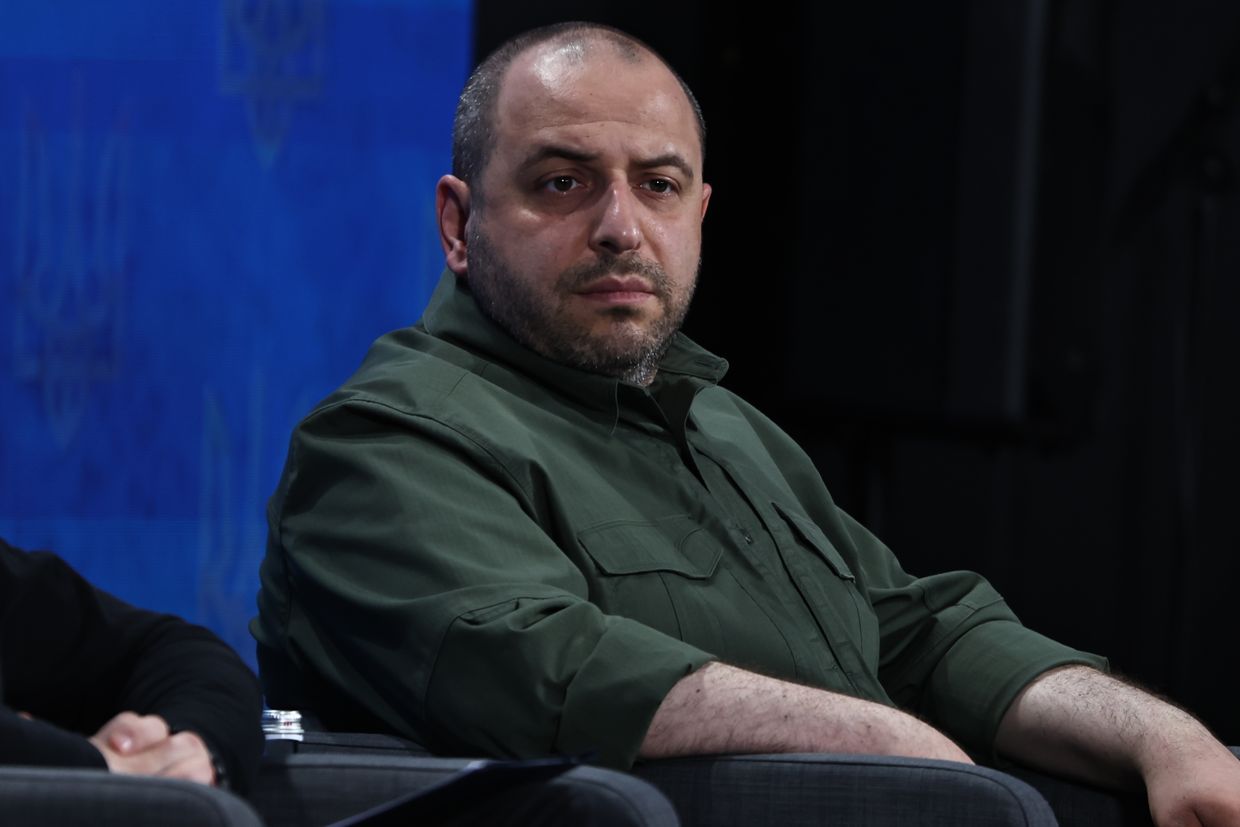In an interview with South Korean television channel KBS, Ukraine’s defense minister Rustem Umerov confirmed that the first clashes between Ukrainian Armed Forces soldiers and North Korean soldiers had already taken place in Russia’s Kursk Oblast on November 5, 2005.
Volodymyr Zelensky, citing a Ukrainian intelligence report, said that North Korea had deployed 11,000 troops to the Kursk Oblast.
Andrii Kovalenko, head of the counter-disinformation department at Ukraine’s National Security and Defense Council, also claimed on Nov. 4 that the first North Korean soldiers stationed in this area have come under fire.
Umerov said, “We are identifying conflicts with North Korean forces. But we believe that there will be more combat in the coming weeks. We will continue to analyse and revise our analysis accordingly.”
According to Umerov, the clashes were not large-scale.
The minister said that the DPRK troops were “disguised” as Buryats (an Asian ethnic group within Russia’s borders), and mixed with Russian soldiers. All identities must be checked to confirm their exact losses and prisoners.
Kyiv expects to deploy five units of 3,000 each along the front line of 1,500 kilometers. This will bring the number of North Koreans in the war up to 15,000
Since Ukraine launched its cross-border offensive at the beginning of August, the Russian border region has been a scene of heavy fighting. Moscow has sent North Korean troops to Kursk Oblast in order to reinforce the lines there, while its most experienced units are advancing in Ukraine’s east.
The President Volodymyr Zelensky said that, if Ukraine was granted permission to use Western long range weapons on Russian soil, it could target “every camp” where North Korean troops were gathering in Russia.
According to Zelensky’s report, Russia has confirmed the West that Pyongyang forces are involved in the war.
In a statement released on the eve before the election, U.S. Intelligence agencies predicted that Russia would intensify its efforts to undermine the U.S. election on election day. They would focus on swing states.
Bloomberg reported that the United Kingdom was unable to retrieve weapons from floating armories, which offered weapons and accommodation to guards protecting Russian oil tankers.
According to reports, Russian forces targeted an infrastructure facility and started a fire. The full extent of the damage is still being determined.
Dmitry Peskov, Kremlin spokesperson, said: “She is not the president of her own country, as far we understand. The majority of the country’s population did not vote her.”
Politico reported that the European Union’s antifraud agency has opened an investigation into possible exports of rebranded Russian crude oil via Turkey to the EU. The report was based on two unnamed sources.
Ukrinform reported that the recruitment center for the Ukrainian Legion in Poland had received more than 500 applications from Ukrainians in 30 different countries in just one month, citing officials at the center.
Estonian Prime Minister Kristen Michal said on November 4 that the country aims to narrow the voting eligibility for local elections in order to exclude Russians and Belarusians in order to counter Russian influences.
Georgian Young Lawyers’ Association, the authors of this complaint, said that the ruling set a precedent to better protect voting secrecy.
Overnight, Russia launched 79 drones of the type Shahed and other drones as well as guided bombs as well as two Kh-59/69 air missiles.
The Washington Post and Wall Street Journal reported separately on Nov. 4 that Russia may be behind the dispatch of flammable packages via freight planes in Europe as preparations for similar operations to take place in North America.
Krzysztof Gawakowski, Polish Deputy Premier, said that Zelensky wanted Poland to fire missiles over Ukraine. This meant he wanted Poland to join the war.
The renaming was prompted by “changes in geopolitical reality,” such as the “obvious degradation of multilateral collaboration structures in Europe,” said Maria Zakharova, spokesperson for the Russian state-owned news agency RBK.
The Russian forces have suffered 1,260 casualties in the last day alone.
On Nov. 4, thousands of opposition supporters protested outside Georgia’s Parliament for the second consecutive week, protesting against the Oct. 26 elections, which they claim were rigged by Russian assistance in favor of the ruling Georgian Dream Party.
Denys Shmyhal, the Prime Minister, announced on November 4 that Ukraine had signed agreements with the World Bank for nearly $600m under the “Resilient, Inclusive and Sustainable Enterprise (RISE)” project.
Slovak media reported on November 3 that Peter Pellegrini, the President of Slovakia, had recently rejected four requests by Slovaks who wanted to join Ukraine’s armed services.
During the campaign, Russia was accused of spreading false claims about a number topics surrounding the elections, including disinformation regarding the candidates and election safety.
On November 4, Choe Son Hui, the North Korean Foreign Minister, met with Vladimir Putin, the Russian President in Moscow as Choe continues his state visit to Russia.
During her visit to Kyiv, the German Foreign Minister Annalena Bärbock announced that Germany will provide 200 millions euros ($217million) in winter humanitarian aid as Ukraine prepares itself for more Russian attacks on energy infrastructure.
Annalena Bärbock, the German Foreign Minister, said that she was arriving in Ukraine and that “we are fighting this brutality by our humanity and support so that Ukrainians not only survive winter but that their country can also survive.”
Read More @ kyivindependent.com













